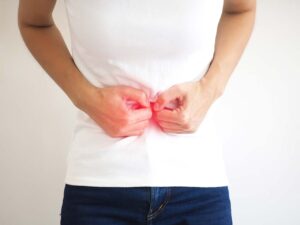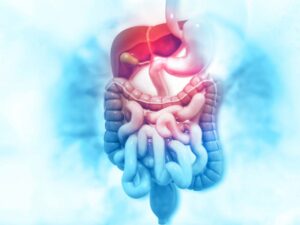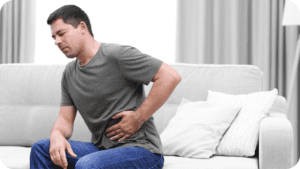Fecal Impaction Treatment
Already know that you have fecal impaction and enema is not working for you?
Fill out this quick 5-question form to see if you qualify for the PIE Device?
Learn more about Fecal Impaction
First off, what is fecal impaction?
Fecal impaction means that dry, hard poop (a.k.a. stool or feces) is stuck inside the rectum. This sounds similar to constipation—so, what’s the difference?
Constipation is the feeling of not being able to poop while fecal impaction is a build-up of stool. This means that constant or chronic constipation can cause fecal impaction.
Typically, when you are constipated, you are not able to have a complete bowel movement. If this happens over and over, then it will lead the stool to build up in your color.
Fecal impaction can affect anyone but is more common in adults.
.
What are the symptoms of fecal impaction?
Fecal impaction can present in many ways, including:
- Pain in the abdomen or lower back
- Distention (bloating or fullness) of the abdomen
- Discomfort or sense of fullness in the rectum
- Inability to pass stool for many days
- Bleeding
And sometimes fecal impaction can make you feel tired, lose your sense of appetite, or feel nauseous.
How do I get a diagnosis of fecal impaction?
Your doctor might diagnose you with fecal impaction by any of the following methods:
- Based on your symptoms
- Digital rectum exam.
- Abdominal X-Ray
The digital rectum exam requires inserting a finger into the rectum to see if any built-up stool can be felt.
The abdominal X-Ray may be used to confirm the location of the impaction and confirm that there is no other problem.
How is fecal impaction treated?
- Stool softeners: Stool softeners (think over-the-counter brands like Colace, and generic docusate) are often attempted as the first step for fecal impaction. Though widely used, research indicates that they have limited efficacy.
- Laxatives: Laxatives can be one component of treating fecal impaction. One study found that one type of laxative called polyethylene glycol (PEG) was the best laxative for treating fecal impaction. Laxatives are generally well-tolerated by patients.
- Enemas: A warm enema is sometimes used to soften the stool and can make it easier to get rid of old feces in the colon. Enemas alone are not always enough to remove the source of fecal impaction.
- Physician-assisted removal or finger disimpaction: Sometimes, treating fecal impaction requires manual removal. This is especially helpful if the hard stool can be felt in the rectal area. A physician will insert a gloved index finger with lubrication to gently remove the stool. Sometimes, the procedure requires an anoscope (a small hollow tube to assist with examination) or the use of suction.
- PIE Device: The Pulsed Irrigation Evacuation (PIE) Device is a research-backed solution for even severe cases of fecal impaction. It is simple, reliable, and safe. In one research study of fourteen individuals treated for fecal impaction, no patients required hospitalization for impaction due to the success of the PIE Device by the midpoint of the study.
- Surgery: In severe cases of fecal impaction, surgery such as endoscopic disimpaction may be necessary. If you keep having fecal impactions and you do not use any of the methods above, parts of your bowel may be removed.
Why is it important to treat an impacted bowel?
There are a number of ways that fecal impaction can be safely treated. It is important to treat fecal impaction because the long-term complications of not doing so can be dangerous, and even fatal in some cases. Fecal impaction can cause bowel perforation (when a hole forms in the colon), bleeding, obstruction, and ulcers.
Fecal impaction can also lead to fecal incontinence where stool leaks out from your bowel. This happens because watery stool may squeeze around the impaction and leak out.
Fecal impaction is preventable. Regular exercise, adequate hydration, and sufficient fiber in the diet can all be helpful in preventing fecal impaction from recurring once you have treated it.
As we’ve shown, it’s important to treat fecal impaction. You do not have to just live with it.
If you are wondering if the PIE Device is right for you, click the button below.





